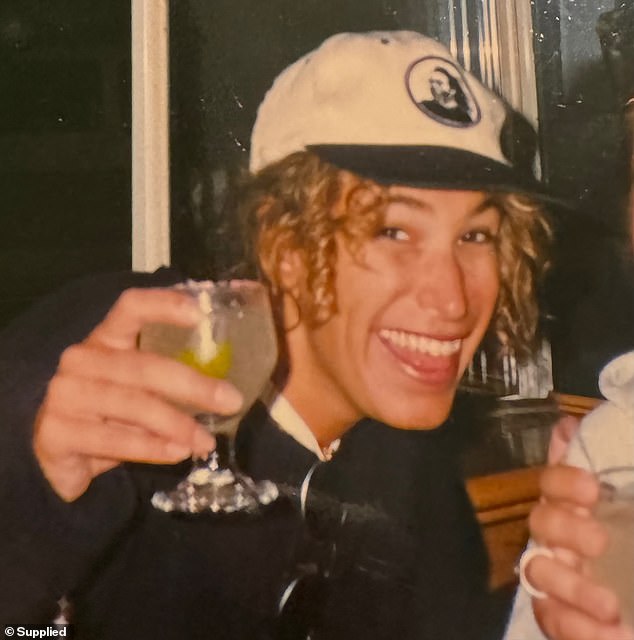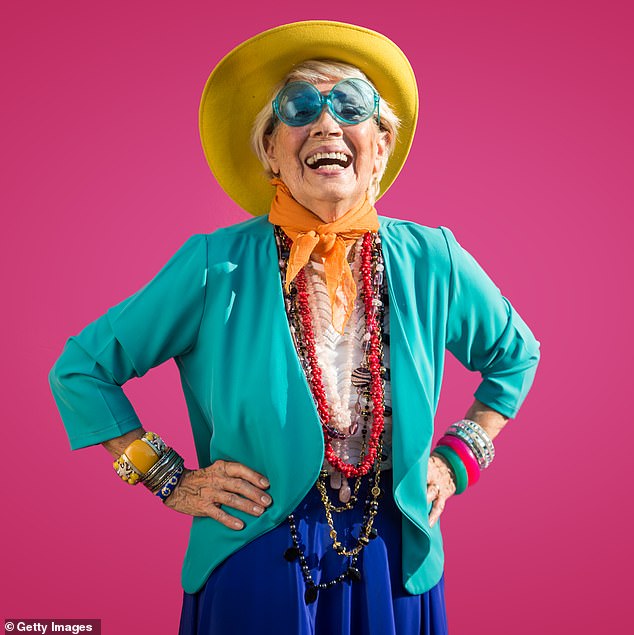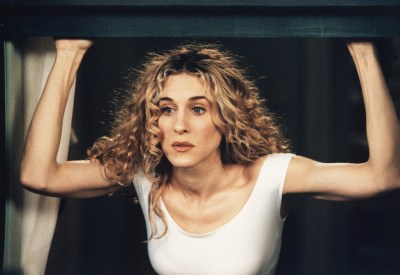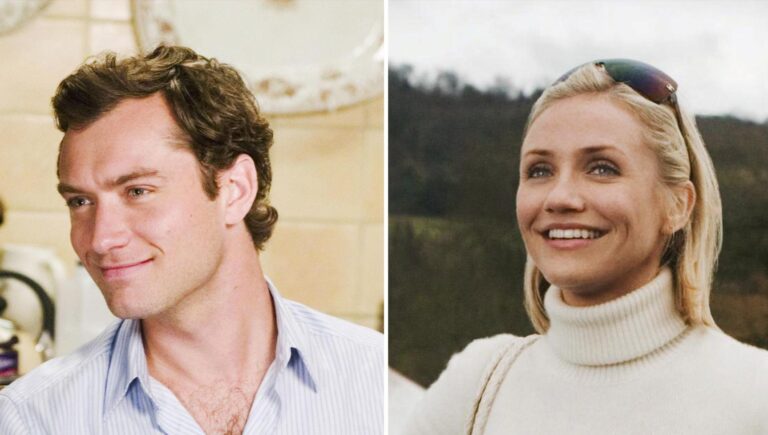From the outside, 25-year-old Lisa F. Smith looked like she was living the dream.
She had just graduated from law school, had started working at a prestigious New York City law firm and, for the first time in her life, had a place of her own.
But behind the glass doors and the corner apartment windows, she was unravelling.
‘I was a total type-A perfectionist,’ Lisa, now 59, tells Royale.
‘I worked so hard, but I was terrified all the time. I didn’t want to let anyone down. I worried constantly about what people thought of me, and deep down I was sure that one day someone was going to find out I didn’t belong there.’
In the early 1990s, Big Law ran on one simple philosophy: work hard, play hard.
‘You’d work insane hours, then you’d all go out drinking together, and somehow be back in the office the next morning like it hadn’t touched you. It was relentless.’
For a while, Lisa managed – until, six months in, the work she loved was suddenly taken away.

When Lisa was a corporate lawyer in New York, the message was clear: work hard, play hard

She promised herself she’d never drink in the daytime. Then she did. After that, she vowed never to drink in the morning. Then she crossed that line, too
‘I’d been in the environmental law group – I loved it – and overnight they told me there wasn’t enough work in that section. They moved me into corporate finance.
‘I’d specifically avoided anything corporate in law school. I didn’t know the language, I didn’t know how to do it. It felt like the rug had been pulled out from under me.’
That’s when she started drinking at home.
‘At first, it was a glass of wine or a couple of beers after work, just to calm my brain. Then it was two glasses. Then three. Then a bottle. I thought, well, at least I’m not drinking in the daytime.’
For years, Lisa clung to that rule – until she didn’t.
‘I told myself, “The French drink at lunch. It’s fine to have wine with colleagues during the day – but at least I don’t drink in the mornings.” That was my line. That was the one thing I was proud of.’
Then came the morning that line disappeared.
‘One morning I woke up shaking so badly, I couldn’t stop vomiting. I had a meeting first thing, and I knew I couldn’t get there like that. So I opened the freezer, pulled out a bottle of vodka, and had a drink before 8am.

Lisa’s descent into drugs represents the last remaining cocaine taboo: the true addict. She wasn’t partying – she was a reclusive cocaine addict who used on her own
‘And I told myself: “This is just today.” You’ll get it under control. But of course, I didn’t. That’s when the morning drinking started.’
Not long after the morning drinking began, Lisa had what she describes as her first ‘not great’ performance review.
‘They told me all the things I needed to be doing to get where I needed to be, and all I could think was, “I can’t do all of that.” I was already too far gone,’ she says.
So when an opportunity came up to move out of corporate finance into a client-development role – working directly with the firm’s directors instead of advising clients – she grabbed it.
‘It felt like a lower‑stakes job, so I signed up straight away.’
The morning drinking continued in her new role, but it made her drowsy and she slurred her words at work. That’s when cocaine came into the mix.
At first, cocaine had been an occasional party drug for Lisa.
‘Then, when I decided to buy it myself, I crossed a line. And once I had a dealer, it just became part of my life,’ she says.
‘I started adding cocaine to my mornings. It took away the shakes, it woke me up. If you’d seen me waking up back then, you’d have thought this is a very sick person. But an hour and a half later, after I’d recalibrated with alcohol and cocaine, I could sit in a meeting at 8.30am looking like I was fine. I wasn’t fine.
‘And in my head, this new role at work made it feel okay to be using alcohol and cocaine just to get through my day. I told myself I wasn’t advising clients under the influence, so it didn’t matter.’
For the next few years, Lisa’s life revolved around cocaine.
And not the ‘weekend coke’ culture that seems to be widely embraced these days – we’re not talking ‘cheeky wine and lines’ nights with the girls.
Instead, Lisa was a reclusive cocaine addict who used on her own. Hers was the bleak, solitary reality rarely associated with such a supposedly ‘glamorous’ drug.
‘By Friday, my brain wasn’t thinking about work anymore. It was thinking about getting enough cocaine to get through the weekend. I’d shut my office door at 2pm, terrified a partner would come in before I got through to my dealer. My biggest priority wasn’t the multimillion-dollar work I had due on Monday – it was making sure I had drugs in my hand before I left.’
Once the cocaine was delivered, she would shut the door and vanish into the weekend.
‘I’d tell myself, “I’m working.” And for a while, that made it feel okay. But then it didn’t matter anymore. I’d drink two bottles of wine, do lines, go from the kitchen to the couch to the bedroom, and barely eat. Sometimes I’d call friends and the next day I couldn’t remember what I’d said. One time I even planned and paid for a trip to Paris during a binge, and had no memory of it.’
By Monday morning, she hated herself.
‘Before I left the apartment, I’d look into the mirror I used to cut my coke, make sure there was nothing on my nose, and say out loud: “I hate you.”‘
Her dealer, Henry*, became the only human contact she had from Friday to Monday.
‘He’d come over, unzip his backpack, and I’d pull the mirror off the wall and use my AmEx card to make the lines. I kept beer in the fridge for him, and we’d just sit there like normal friends, except there was a gram of cocaine between us. He’d watch the local news or read the paper while I did lines. Sometimes he’d do one too. Then he’d get another call and leave. He was the only person I could really be myself around. I was more comfortable with him than anyone else in my life. That’s how sad it had become.
‘My family didn’t know. My friends didn’t know. A month before I went to rehab, I’d been given a huge raise and a bonus. I wasn’t working anywhere near my potential, but I was getting away with it.’
She managed to keep up the appearance of control – but it was a delicate façade.
‘I remember one meeting realising I’d left my cigarette packet on my desk, and inside was a little bag of coke. Anyone could have come in and found it – even a friend who used to come and smoke with me. He could have picked it up and the whole thing would have been over. That kind of close call happened more than once. It makes my stomach flip even now.’
The first person to confront her was her neighbour Mark, who told her flatly: ‘You need to go to rehab.’ She denied it, cleaned up the evidence, and threw him out.
Two weeks later, Lisa was on her way to work on a Monday morning when her body seized.
‘I thought I was having a heart attack, or that I’d finally overdosed. I couldn’t breathe. I thought I was going to die, and I didn’t want to.’
It turned out to be a panic attack. But it was the moment everything changed.
‘I knew I had to get help. I didn’t have any sober friends. I called Mark. And I called my doctor.’
She knew exactly what she needed: a medical detox.
‘I’d looked into help before. I knew that I couldn’t just stop – that the withdrawals could kill me. I needed to be in a hospital.’
Her doctor called around the city.
‘Every place he called said, “No bed.” And finally, he found one. When I got there, I realised why there was a bed – it was a really hardcore detox unit. To be admitted, I had to sign myself in as a psych patient for 72 hours. It was scary and confronting, but I needed it.’
Inside that detox unit, the doctor sat Lisa down.
‘He said: “You’re a smart woman with a serious problem. If you do not stop, you are going to die.”
‘He explained that I had a family history of addiction. That I’d been trying to treat massive anxiety and depression on my own with alcohol and cocaine. That I wasn’t weak – I was sick.
‘For the first time in my life, it made sense. I wasn’t a failure. I was self-medicating, and it was killing me.’
Before leaving for the hospital, Lisa emailed her colleagues: ‘I have a medical emergency. I’m fine, but I’ll be in the hospital with no laptop and back on Monday.’
‘I didn’t tell them what it was. I knew I could be out for a week without anyone asking questions. I didn’t want my firm to know.’
Then she told her family.
‘I called my parents and said, “I’m having a problem with alcohol. I need to check into a place.” They were shocked – they had no idea. Then I told my closest friends. Six of them – all with these high-flying jobs – left work on a Monday morning and came to my apartment. They were just there for me. We finished all the alcohol in my apartment and then I went to detox.’
The relief was immediate.
‘More than anything – more than even the physical withdrawal – the biggest relief was just saying it out loud. The secret, the shame, the fear – just to be able to say, “This is what’s happening to me, this is the truth.” It felt like the first breath I’d taken in years.’
Lisa completed five days of detox, then threw herself into outpatient therapy, 12-step meetings and proper treatment for the depression and anxiety she had been trying to mask.
That was 21 years ago.
She tells the story now in her memoir, A Girl Walks Out of a Bar, because she knows there is someone out there who feels like she once did: holding it all together on the outside, while secretly falling apart inside.
‘When I got sober [at 38], I thought, I have to do this perfectly – like everything else in my life. I wanted to be top of the class at sobriety,’ she says.
‘My sponsor told me something that changed everything: “The only thing you have to do perfectly today is get a sober head to the pillow.” That’s it. One day at a time. It was such a relief to hear that I didn’t have to be perfect at this, too.’
Her advice to anyone who might be where she once was is simple: ‘Just one day at a time. This day, this hour, this breath – whatever it is. You don’t need to think about never drinking again. You just need to think: I’m not going to drink today.’
* Name has been changed









